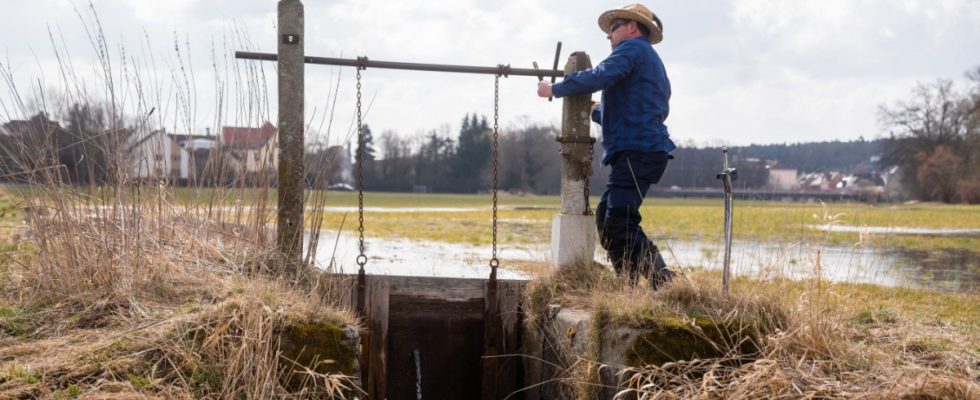Farmers in Franconia have been irrigating their meadows for centuries using a sophisticated network of water scoops, ditches and small weirs. Now the knowledge of traditional meadow irrigation, passed down from generation to generation, is to be declared an intangible cultural heritage of humanity. Next week, the responsible UNESCO committee will meet in Botswana, Africa. A decision could come on December 6th.
People are eagerly awaiting this, especially in Nuremberg and the Forchheim district. The two municipalities were significantly involved in the application on the German side. It also includes the pond meadows in Rhineland-Palatinate as well as traditional irrigated crops in Belgium, Italy, Luxembourg, the Netherlands, Austria and Switzerland.
The committee will also decide on two other contributions with German participation: midwifery and manual glass production. According to the German UNESCO Commission, all three nominations received a positive preliminary assessment.
There are therefore good chances in Franconia, said Roland Lindacher, who is responsible for the water meadow project in the Forchheim district. He hopes that with its inclusion on the UNESCO list, the ancient knowledge will be better preserved and become known again. “Like many cultural forms, the water meadows are threatened by technical developments.”
The cultural technique was once widespread along the Rednitz, Regnitz and Wiesent rivers in Franconia and helped to supply the rapidly growing population with food in the Middle Ages. However, in the course of industrialization it lost its importance because electric pumps, irrigation systems and artificial fertilizers made the laborious manual work unprofitable.
However, in view of global warming, cultural technology is becoming increasingly important again. The water meadows in the Rednitztal near Nuremberg cooled down the temperature in the area and provided fresh air in the city, explained Gisa fahrer from the Environment Agency. “The water used for irrigation remains in the area.” This is also important because of increasing drought and falling groundwater levels. Lindacher added that water can also be stored in the ditches during heavy rains, which can protect the surrounding area from flooding.
The Forchheim district is therefore not only trying to preserve water meadows, but is also trying to reactivate dormant ditch systems. “This is not something a farmer can do alone,” Lindacher said. A cooperative was founded for this purpose in the past. The authority is now trying to revive this by approaching farmers and municipalities and also supporting them financially.

